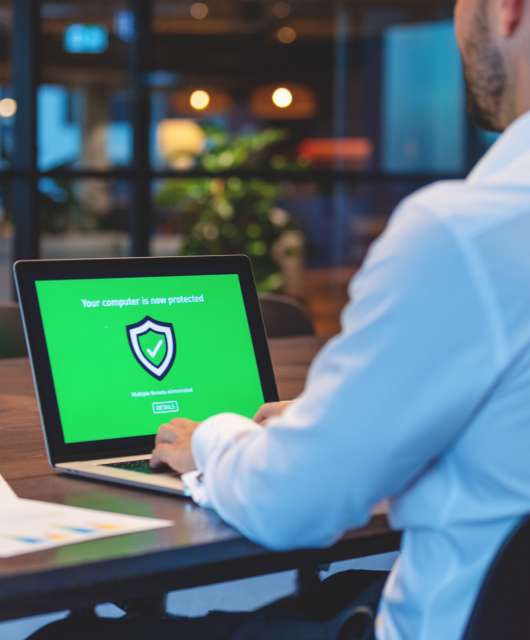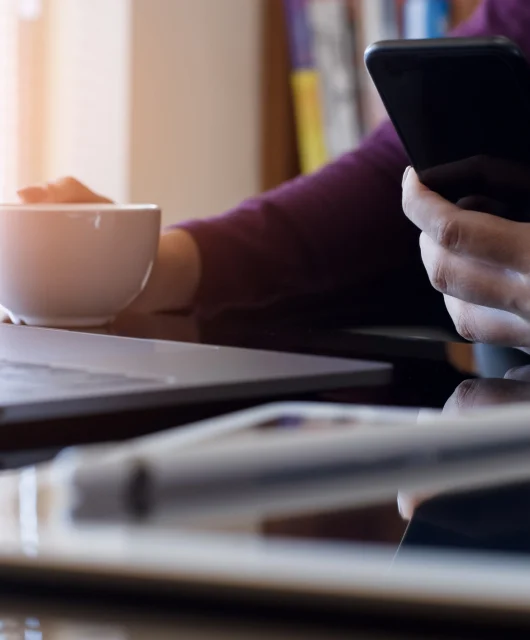Modern cell phones are equipped with GPS systems that constantly record and store our location information. This is a helpful feature if you want to find a lost phone or choose the best route for a road trip, but it also allows apps, ad companies and even hackers to access your location, sometimes without your knowledge. If you want to learn how to make your phone impossible to track, you’re in the right place.
This guide will provide strategies for protecting your location information and explain how to tell if your phone is being tracked.
How Can Someone Track Your Phone?
If you’re asking yourself, “Is my phone being tracked?” it’s important to first know that tracking doesn’t always mean your location — data like calls, messages and internet activity could also be monitored.
Smartphones can be tracked in multiple ways, whether through apps, built-in location services, or external tools. Here are some common methods:
- GPS: GPS pinpoints your phone’s location using satellites. This is how apps like Google Maps or rideshare services know where you are.
- Cell towers: Your phone connects to nearby cell towers, and by triangulating these signals, your location can be roughly estimated, even without GPS.
- Wi-Fi networks: When connected to Wi-Fi, your phone’s location can be determined based on the network’s proximity and known geographic location.
- Spyware: Malicious apps or software installed on your phone can track your movements, read your messages and monitor your activity without your knowledge.
But location tracking goes beyond GPS. Your phone constantly communicates with nearby cell towers, which allows service providers to estimate your location based on signal strength. Even Wi-Fi networks can provide location data if you’re connected to one.
13 Ways to Make Make Your Smartphone Impossible to Track
While there is no single method to prevent people from tracking your phone, there are steps you can take to restrict your location sharing and protect your GPS data.
- Disable location services
- Scan for and remove spyware
- Use a private browser
- Turn on airplane mode
- Remove unfamiliar apps
- Protect your Google account
- Use a VPN
- Turn off your phone
- Avoid public Wi-Fi that isn’t password-protected
- Disable location tracking on social media apps
- Lock your SIM card
- Install updates
- Disable ad tracking
1. Disable Location Services
When you download an app for the first time, you might get a permissions notification asking if you’d like to allow access to your current location. Many people click “Allow” without giving it a second thought, but that isn’t always the best idea. By granting an app permission to use your location, you may be allowing it to track and store your GPS data even when you aren’t using it. Companies often sell this information to advertisers, hedge funds or other businesses that can profit from it.
To help prevent apps from tracking your location, you can turn off location services for certain apps or disable them completely in your phone’s settings. People can still track your phone if location services are off, but the apps won’t be able to access your location.
To disable location services on Apple and Android phones, follow these steps:
Android
- Open your phone’s settings.
- Scroll down and click on Location.
- Switch the location services slider to Off.
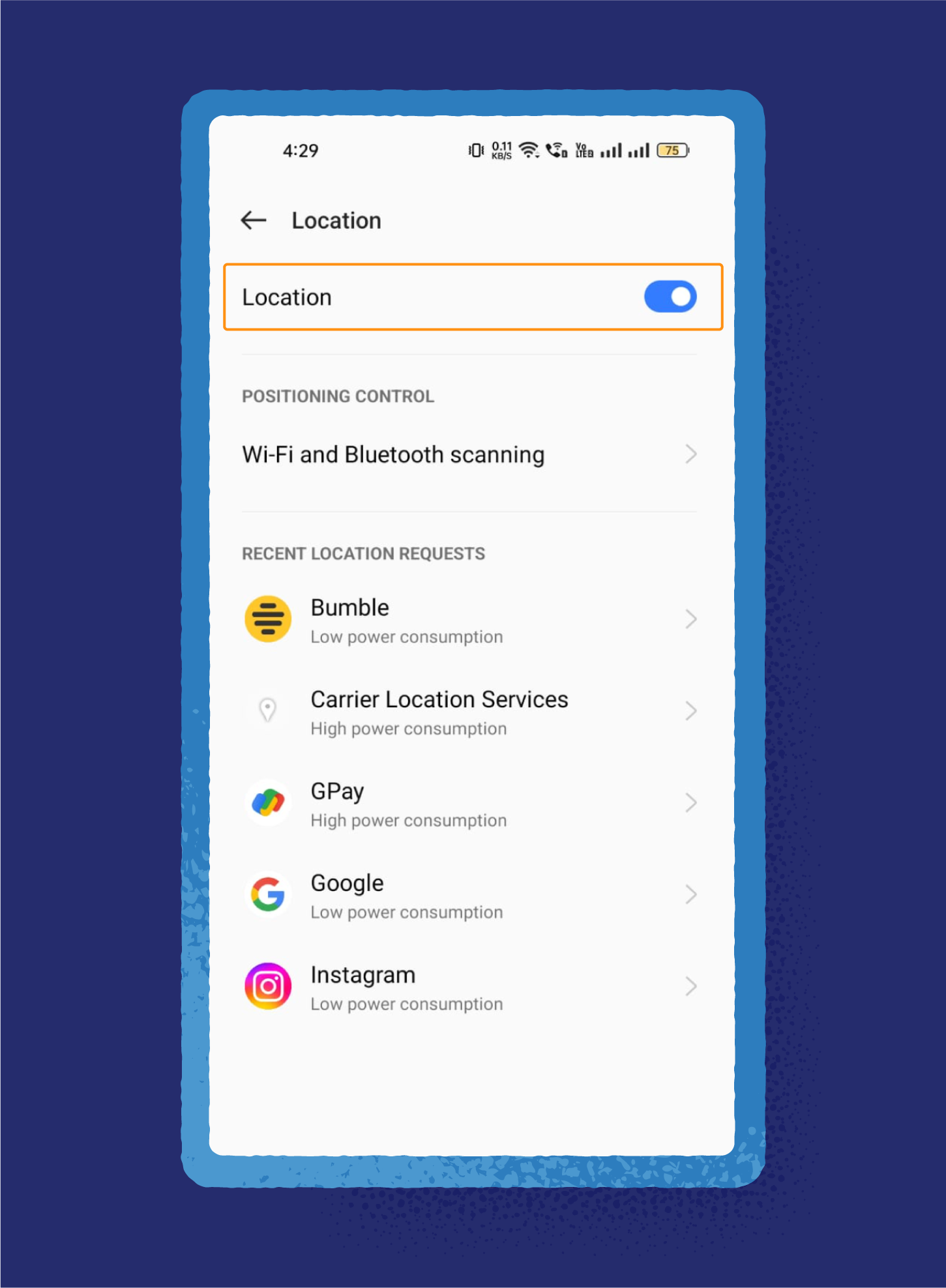
iPhone
- Open your phone’s settings.
- Click on Privacy & Security.
- Click on Location Services.
- Toggle the Location Services button to Off.
Note: Turning off location services can boost your privacy, but it also limits the functionality of many online services. For example, map apps like Google Maps or Apple Maps won’t be able to provide accurate directions without your location data. Similarly, location-based services like ridesharing apps and weather updates won’t function properly if they can’t access your phone’s GPS.
2. Scan for and Remove Spyware
Some hackers install malicious spyware on devices to collect and sell sensitive data. If your phone becomes infected with spyware — either through a malicious app or download — an attacker could use it to access your location information.
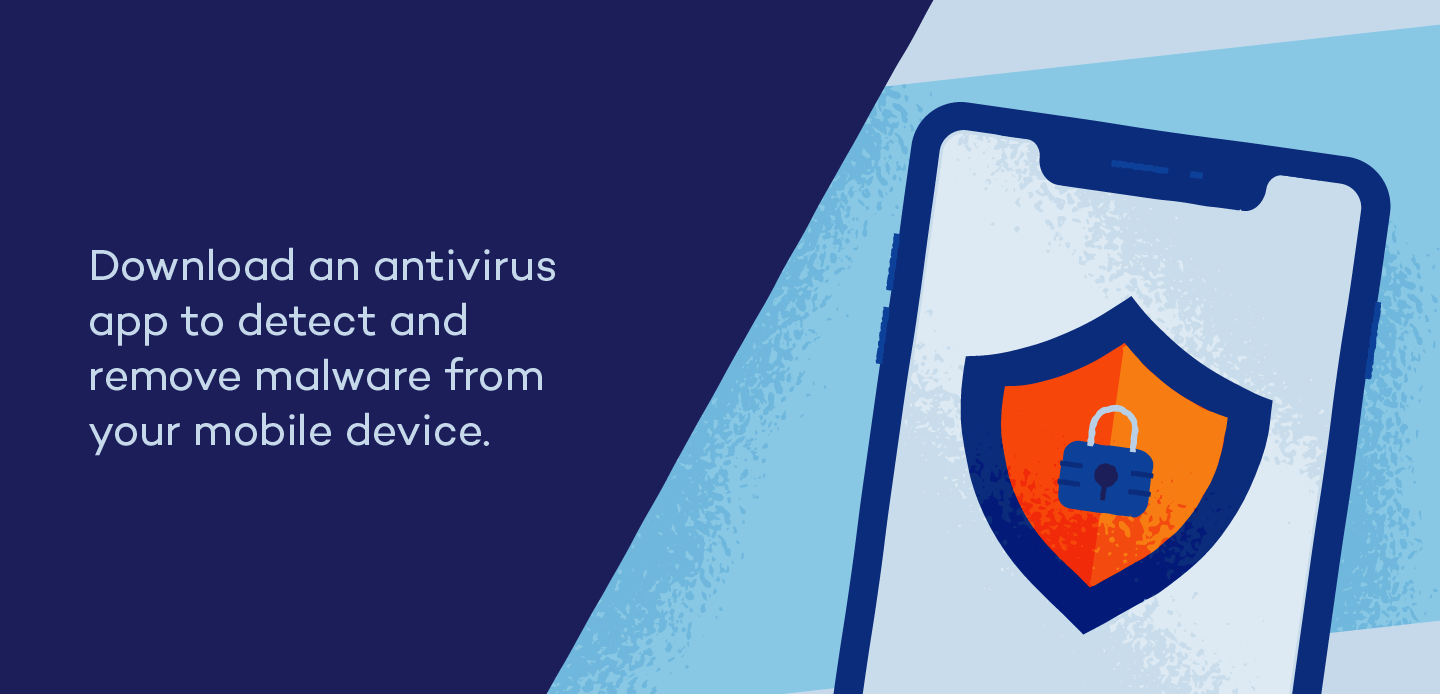
Fortunately, there are ways to detect and remove spyware from your phone. The easiest way to do this is by installing a spyware removal tool. A reliable antivirus app can scan your device for malware and provide instructions for safely removing it. However, some apps that advertise as antivirus tools are actually fake, so research reliable apps before you decide to download them.
3. Use a Private Browser
Popular internet browsers — like Google Chrome or Firefox — use your location to perform various tasks, from targeting ads to personalizing your search results. This can be helpful if you’re looking for restaurants near you or things to do in your area, but it also means that the browser is constantly storing your location and other personal information.
To help prevent this, you can turn off location tracking in your browser’s privacy settings or switch to a private browser. Private search engines like DuckDuckGo and MetaGer allow you to surf the web without collecting your IP address, location or search information. This reduces the risk of hackers accessing your location or other sensitive information through your online activity.
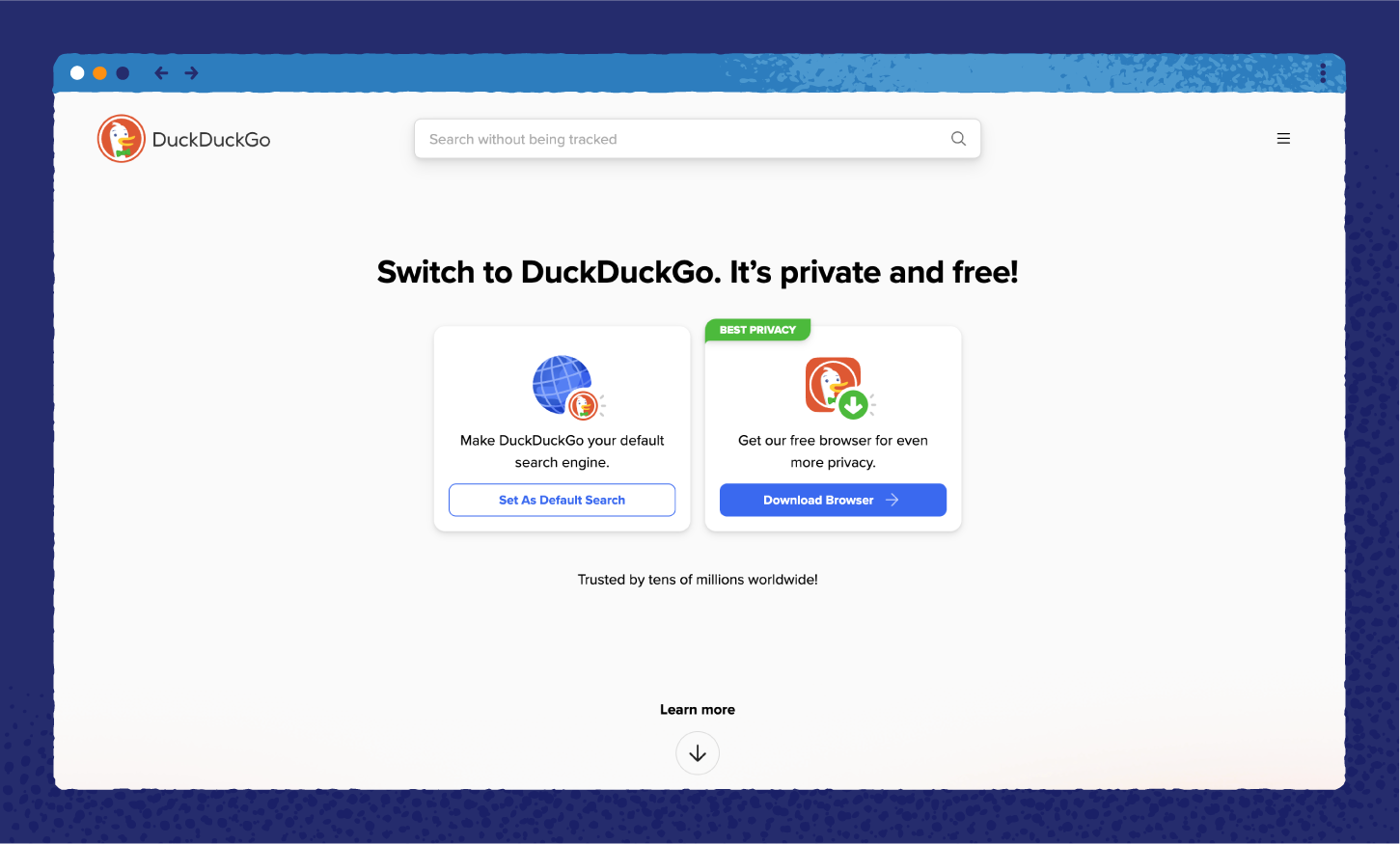
4. Turn on Airplane Mode
You can put your phone in airplane mode if you suspect that someone is using your online activity to track your device. This disconnects your phone from cellular networks and prevents some online services from accessing your location. However, you won’t be able to access the internet or use key functions like calling and texting while your device is in airplane mode, so you’ll likely need to look for a more permanent solution.
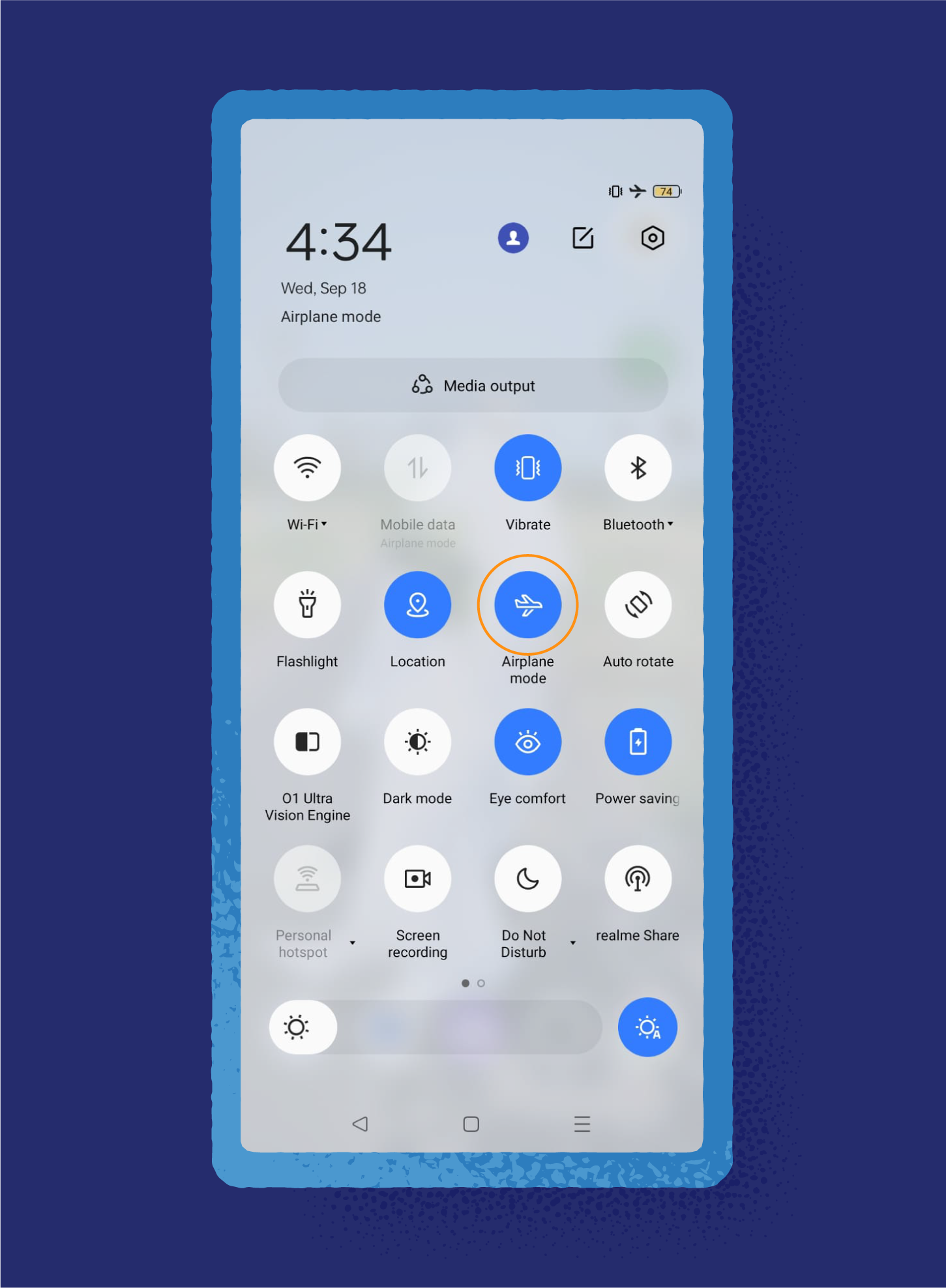
5. Remove Unfamiliar Apps
An unfamiliar app or download that you didn’t install could be a sign that a hacker has infected your phone with spyware. Malicious downloads are designed to access and steal sensitive information like login credentials, digital activity and even GPS data. To protect yourself from these types of scams, you should remove any unfamiliar apps right away.
6. Protect Your Google Account
If you have a Google account, it’s important to check your location settings to ensure that you aren’t sharing your location with unwanted parties. If you’ve shared your location with someone in the past, they may still be able to access it through Google.
Google also has a feature that allows you to track all of your past movements even when you don’t have a Google application running. This can be helpful if you want to see where you’ve been or remember how to get somewhere, but it also leaves you vulnerable if someone hacks your Google account.
To keep your Google account secure and protect your location information from attackers, remember to update your password and privacy settings regularly. You can also turn off Google location tracking or delete your movement history in your phone’s settings.
7. Use a VPN
Using a reliable VPN is one of the best ways to prevent hackers, companies and advertisers from accessing your IP address and exact location. A VPN works by encrypting your data and rerouting your online traffic through an outside server. If a third party wanted to view the source of your activity, it would trace back to one of many VPN servers instead of your actual router. This ensures that your connection remains private and prevents hackers from accessing your location, IP address or online activity.
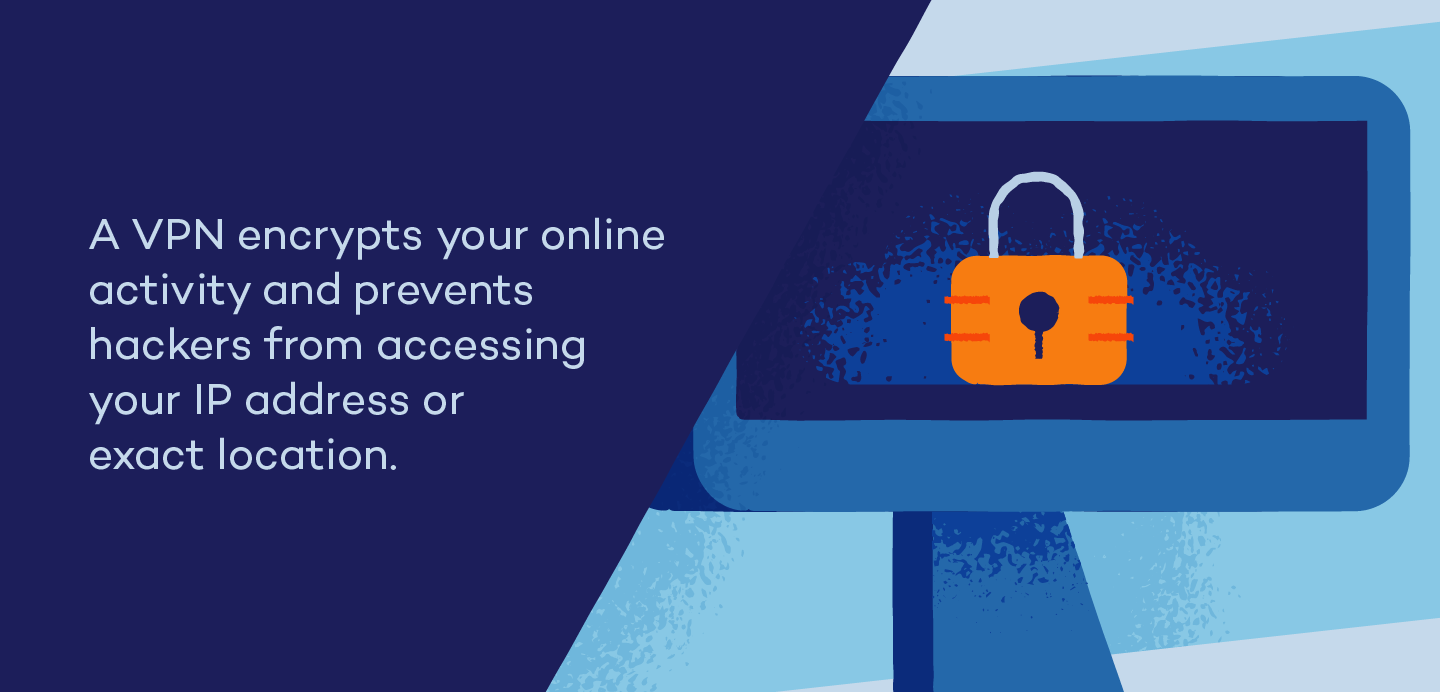
8. Turn Off Your Phone
If you discover that someone is tracking your phone and need a quick solution, turning it off completely will cut off communications with networks and GPS data. The tracker may still be able to see your last known location but won’t receive any real-time updates while your device is off.
This is helpful if you are in immediate danger or don’t have time to disable tracking services, but it isn’t a permanent solution. Once you turn your phone back on, you’ll need to take additional steps to secure your device and remove unwanted apps or malware.
9. Avoid Public Wi-Fi That Isn’t Password-Protected
Connecting to public Wi-Fi is always risky, especially if it isn’t password-protected. Hackers commonly use public Wi-Fi to perform evil twin, man-in-the-middle and other types of cyberattacks designed to install malware or steal sensitive data. To reduce the risk of a hacker installing spyware on your phone, you should avoid public Wi-Fi whenever possible and only connect to password-protected networks.
10. Disable Location Tracking on Social Media Apps
Social media apps are great for connecting with friends and family or keeping up with your favorite celebrities, but their location tracking and data collection capabilities make them a goldmine for companies and hackers hoping to access your personal information. To prevent people from using apps like Facebook or Instagram to track your location or collect sensitive data, you should disable location tracking.
You can do this by turning off location sharing for social media apps in your phone settings. If you use Facebook or Snapchat, you can also go directly into the app settings and turn off location tracking or restrict who can see your location. This won’t completely prevent the app from storing your location data, but it can make it more difficult for other users to access it.
11. Lock Your SIM Card
Even if you’re not a smartphone user, hackers or government agencies can still track your device’s location by accessing your SIM card. A SIM card is a small memory device that allows you to make calls, send texts and use cellular data by connecting to local cell towers. Your SIM card is unique to your device, and you can use it to track your phone’s location if it’s ever lost or stolen. Unfortunately, hackers can intercept communications between your SIM card and mobile provider to access your location information.
You can perform a SIM card lock to help protect your device from third-party trackers. Before you do this, though, you’ll need to verify your SIM card’s default PIN (personal identification number). Most carriers use the same one for every device, but guessing the wrong one too many times could lock you out of your SIM card completely. If you aren’t sure, you should contact your carrier to verify the default PIN.
Android:
Once you know the default PIN, you can follow the steps below to lock your SIM card:
- Open your phone’s settings.
- Click on Security or Biometrics and Security.
- Click on Other Security Settings.
- Select Set up SIM card lock.
- Enable Lock SIM card.
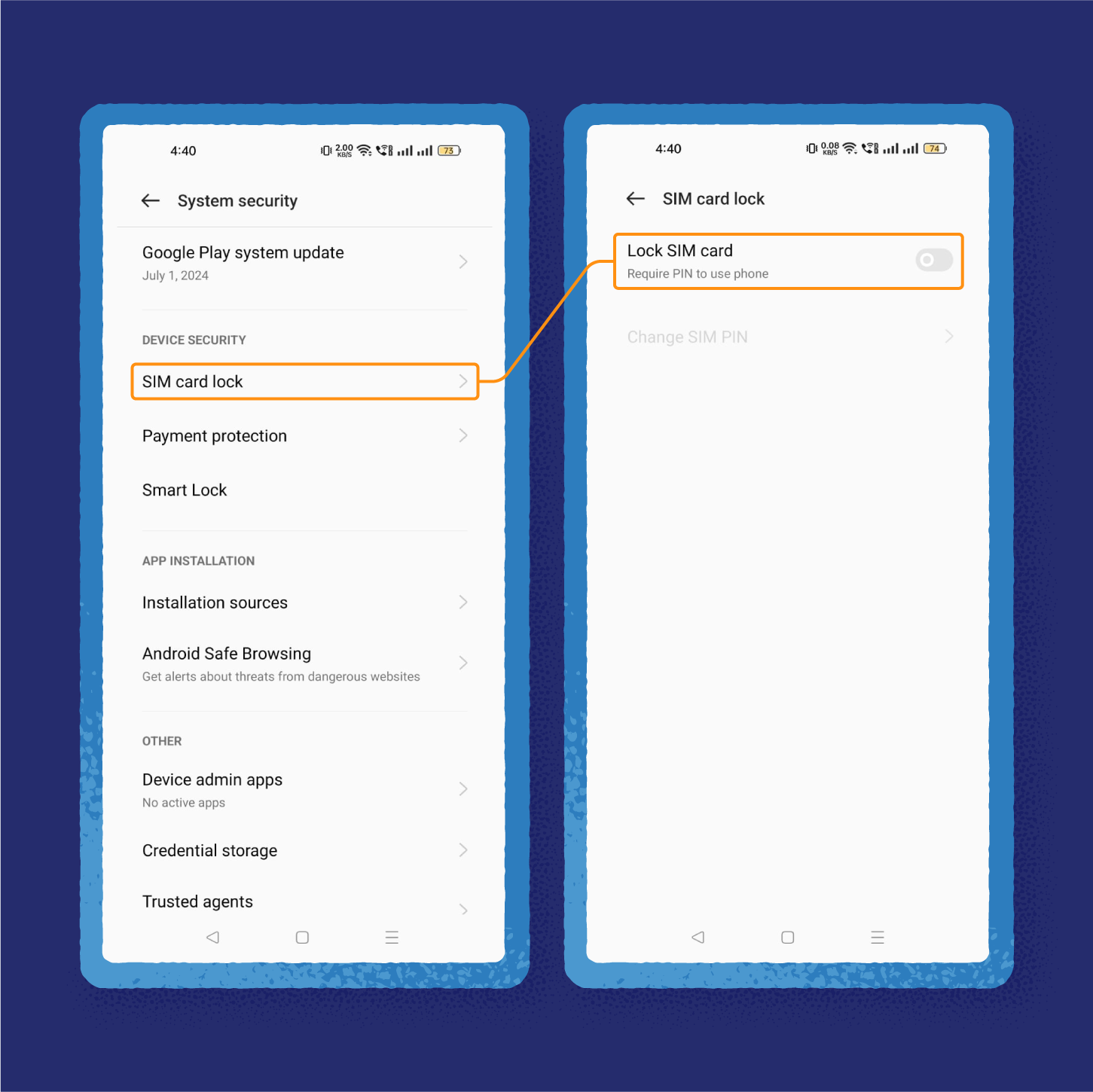
Some smartphones might have different settings. If you don’t see the same options mentioned above, go to your phone’s settings and search “SIM card lock.”
iPhone:
- Open your phone’s settings.
- Navigate to Cellular.
- Find your SIM and click on it (newer phones may have a built-in eSIM).
- Select SIM PIN.
- Toggle the SIM PIN button to enter a new PIN.
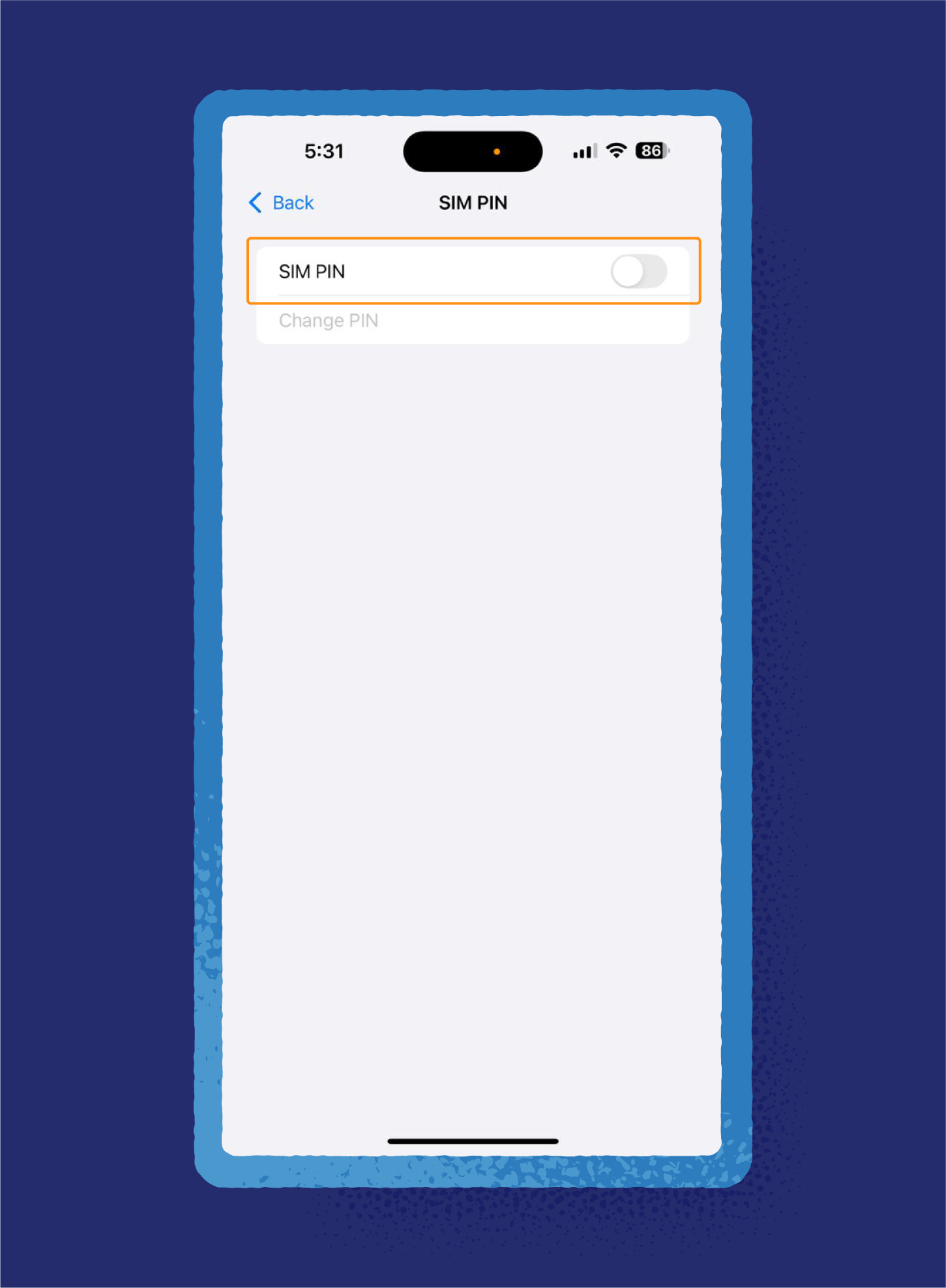
Once your SIM card is locked, you should change the PIN so people can’t access your device using the default version.
12. Install Updates
Keeping your apps updated is crucial for smartphone security, as developers regularly release updates that include bug fixes and security patches. These updates address vulnerabilities that hackers could exploit to track or accessyour phone. By installing updates promptly, you help ensure your phone stays protected against the latest threats.
13. Disable Ad Tracking
Personalized ads rely on collecting data from your smartphone, including your browsing habits, app usage and even your location. Companies use this information to tailor ads specifically to you, but this also means your phone is constantly being tracked to gather data.
If privacy is a concern, turning off ad tracking can limit how much information advertisers collect. While it won’t completely stop ads, it will reduce the level of personalization, making it harder for companies to profile you based on your phone activity.
To disable ad tracking on Android:
- Navigate to Settings.
- Go to Security and Privacy
- Select More Privacy Settings and then go to Ads.
- Select Delete Advertising ID.
![]()
On iPhone:
- Go to Settings.
- Visit Privacy & Security, and then Tracking.
- Toggle off Allow Apps to Request to Track.
![]()
Disabling these settings reduces the data shared with advertisers, giving you more control over who can track your activity. Though it’s a small step, it can make a noticeable difference in protecting your privacy.
Who Can Track Your Location?
Hackers aren’t the only people who can benefit from accessing your phone’s location. The following groups and organizations commonly use GPS data and digital activity to track cell phone users’ locations.
Advertisers
If you’ve ever seen an online ad for a local store or retailer, they probably used location tracking. Digital advertisers frequently target ads based on users’ locations, preferences and online activity. Because so many browsers, apps and websites access and store our location information, it isn’t hard for advertisers to access it. In fact, companies sell vast quantities of user data to advertisers every day without users even realizing it.

Apps and Websites
Countless apps and websites access your location information each time you go online or connect to the internet. They do this for multiple reasons, from selling personalized products and services to connecting you with friends and family in your area. If you open your phone’s location sharing settings, you can see which apps have permission to use your location.
Hackers
Companies and advertisers aren’t the only ones who might want to make money off of your personal information and location. By hacking into your mobile device, attackers can steal your GPS data or other sensitive information and sell it to third parties. Some common methods hackers use to achieve this include installing malware, hijacking your online profiles or gaining access to your social media accounts.
Government Agencies
Government agencies regularly purchase users’ locations and other personal data from tech companies. While agencies in the U.S. are supposed to obtain a warrant before tracking a person’s phone or GPS data, they aren’t always transparent about how they use the information they collect.
In 2023, the Wall Street Journal reported that the U.S. government purchased cell phone location records from a commercial database for warrantless tracking. Additionally, some governments used location tracking during the COVID-19 pandemic to enforce social distancing orders and aid in contact tracing.
Friends and Family
Location tracking isn’t always a bad thing. In fact, some apps are designed for parents and family members to keep track of their child’s whereabouts for safety reasons. Life360, Kidslox and FamiSafe are popular examples of apps that allow family members to share each other’s locations, and some even come with crash detection to notify parents if their kids get into an accident. Apple’s Find My app also serves a similar purpose, allowing users to locate lost or stolen devices and keep tabs on family members’ locations, ensuring they stay connected and safe.
Snapchat also has a popular location feature that allows users to see their friends’ locations while they’re using the app. If you have Snapchat or a location-sharing app installed on your phone, you should review the app settings to see who has access to your location. While these apps are usually harmless, it’s important to verify that only approved friends and family can see your location. You can also use an antivirus with parental control.
How to Tell if Your Phone Is Being Tracked
Malware is designed to be discreet, making it difficult to tell if your phone is being tracked. That said, a few telltale signs could point to a spyware infection.
![]()
Data Usage Is Higher Than Normal
If your monthly data usage is unusually high, it could signal that a hacker has installed spyware on your phone. Malicious apps use data to send information back to the hacker’s device, so you’ll likely notice spikes in data use when these apps are running in the background.
Your Battery Dies Quickly
A lot of things can cause a phone’s battery to drain quickly — from having too many apps running to using an incompatible charger. However, if you notice a sudden drop in battery life or your phone is running hotter than usual, it could be a sign of a hacked phone. Hackers often use malicious apps to track users’ locations, and these apps can quickly drain your phone’s battery.
Your Phone Restarts or Lights Up Unexpectedly
If a malicious app is running in the background on your phone, it could cause it to light up, restart or perform other actions unexpectedly. If you notice that your phone lights up without a notification or performs any other unprompted actions, you should perform an antivirus scan and review your location permissions.
FAQ
Can People Track Your Phone Number?
The average person can’t easily track someone’s exact location with just a phone number. However, there are “find my device” apps that allow users to track their lost phone using their number and Google or Apple ID. If someone has access to your phone number and login information, they could potentially use these apps to track your location.
Reverse phone lookup websites also allow users to search for people by entering their phone numbers, but the results aren’t always accurate. While these websites may reveal the general area where the phone’s owner lives, they can’t determine an exact location, especially if the number has had multiple previous owners.
Can Cell Phone Tracking Be Turned Off Entirely?
Because smartphones are designed to share and use GPS data, it’s nearly impossible to disable location tracking entirely. That said, you can minimize the risk of unwanted parties tracking your phone by changing your app permissions, avoiding suspicious links that could install malware on your device and using reliable antivirus software.
Can Police Track Your Phone?
The police won’t track your phone without reason, but they can access your device’s location history in an emergency or if they suspect criminal activity. Once they have a warrant, the police can access a phone’s GPS data through a cell provider and view its current or last known location. Police and cell providers can track any phone that is connected to a cellular network in real time unless the phone is dead or turned off.
Is It Possible to Fake the GPS Location on Your Phone?
Yes, it is possible to fake the GPS location on your phone using certain apps or software. By installing GPS spoofing apps, you can trick your phone into reporting a false location to apps and services. It can help protect your privacy by making it appear as if you’re in a different location.
However, some apps, especially secure ones like banking or ridesharing apps, may detect this and prevent you from using their services. Keep in mind that GPS spoofing is not a foolproof solution for preventing tracking, as other methods like cell tower triangulation can still reveal your real location.
Can Your Phone Be Tracked When It’s Turned Off?
No, your phone generally cannot be tracked when it’s completely powered off, as it stops sending signals to GPS, Wi-Fi or cell towers. However, in some cases, certain phones may store the last known location before powering down.
Also, if someone has installed advanced tracking software or hardware on your device, they may still have access to some information even when it’s off. If you’re concerned about being tracked, removing the battery (if possible) is the most effective way to ensure your phone isn’t traceable.
Does a Factory Reset Stop My Phone From Being Tracked?
A factory reset can stop some forms of tracking by wiping all data, including apps or software that may have been used to track you. However, it doesn’t always guarantee full protection. If the tracking was happening through your phone’s network provider or if advanced spyware was installed, a factory reset might not be enough. In these cases, more sophisticated tools could still restore or monitor your phone’s activity.
Can Someone Track My Phone Without Me Knowing?
The answer, unfortunately, is yes. With the right software, someone could track your phone’s location without needing physical access to it. Spyware or tracking apps, often installed without consent, can run in the background, feeding real-time information to another device.
While your phone will never be 100% untrackable, regularly checking for malware and restricting location sharing can help prevent your GPS data from falling into the wrong hands.
To protect your information on all of your devices, consider downloading reliable antivirus software or encrypting your online activity with a VPN.
Sources: The Wall Street Journal | Human Rights Watch


